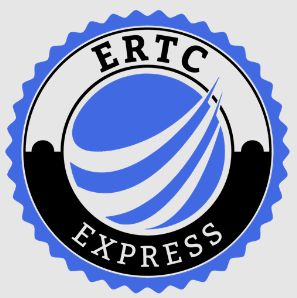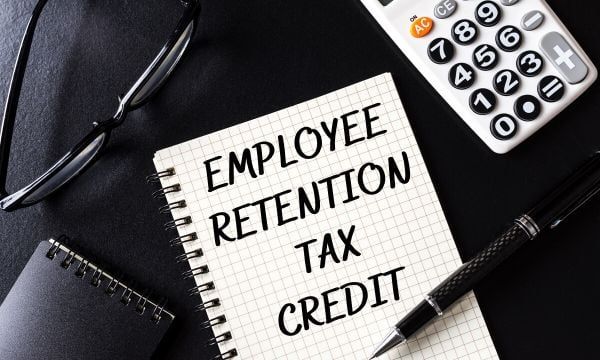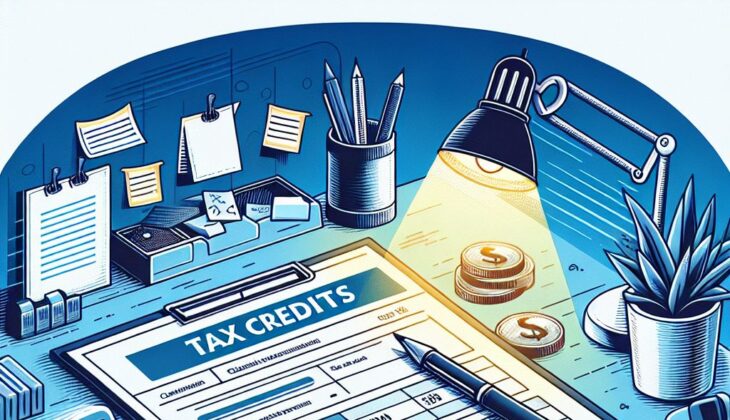- While the IRS has temporarily stopped processing new ERTC claims, businesses can still get ready for the 2024 application process.
- Knowing the eligibility requirements is key to a successful ERTC claim.
- Having the right documents is crucial – make sure you have correct payroll records and evidence of eligibility.
- Avoid common errors by using a step-by-step guide and getting professional help if needed.
- ERTC claims can be examined by the IRS, so it’s important to stay compliant and be ready for an audit.
Most importantly, if you’re a business owner affected by the recent IRS announcement about the Employee Retention Tax Credit (ERTC), don’t worry. Even though the IRS has stopped processing new claims for now, this doesn’t mean you’re out of options. Instead, it’s a time to prepare and make sure that when the pause is over, you’re ready to apply with all the necessary information ready.

Why did the IRS stop processing claims?
Getting to the Root of the Halt
The IRS has put a halt on processing new ERTC claims because there has been a rise in fraudulent claims. This has required additional steps to protect the ERTC program. While this might be annoying for businesses that need these credits, it’s a move to make sure that the money is given out properly and to those who really qualify.
How Processing Delays Affect Businesses
Delays can be a source of stress, particularly when financial aid is involved. For businesses, this could translate to a temporary delay in the receipt of crucial funds. On the flip side, it could also be an opportunity to revisit your claim, verify that you meet the criteria, and assemble all the required documentation to expedite the process once it restarts.
- Examine the IRS pause’s causes and how it affects your company.
- Learn what actions you can take during this period to get ready for when the halt is over.
Steps to Take During the IRS Pause
While this halt is in effect, take proactive measures to get ready for your application. Make sure your financial records are organized and understand the eligibility requirements. If you’re unsure about any specifics, now is the time to get answers. This could mean consulting with a tax expert or using trustworthy resources to familiarize yourself with the requirements.
Is it still possible for Businesses to apply?
Present Situation of ERTC Applications
Indeed, businesses can continue to get their ERTC applications ready. Even though the IRS has temporarily halted the processing of new claims, they will start again at some point. So, it’s not about whether you can submit your application, but rather when you can. Being ready ahead of time will put you at the head of the queue when that time arrives.
What Businesses Should Do if They Plan to Apply Now
Businesses should prepare by:
- Collect comprehensive payroll records.
- Record any notable decrease in gross receipts.
- Maintain proof of any full or partial suspension of business operations due to government orders.
These steps are not just administrative tasks; they are crucial for a successful ERTC application. Furthermore, by getting ready now, you can avoid the haste and potential mistakes that come with last-minute preparations.
What Documents Will You Need to Apply?
You’re going to need the following documents:
- Reports of payroll tax filings that have been submitted to the IRS.
- Income statements that indicate a decrease in revenue.
- Evidence of any shutdowns or restrictions mandated by the government.
It’s crucial to be thorough with your documentation. The IRS will examine these claims carefully, so precision is key.
Key Points
- Get your documentation ready for the ERTC application process during the IRS pause.
- Make sure your business meets the eligibility requirements.
- Get professional advice to help you through the complex ERTC claim process.
Keep in mind, the goal isn’t just to apply, but to apply and succeed. This means you need to understand the process, be thorough with your documentation, and make sure your business meets all the ERTC requirements.

ERTC Application Guide 2024: Eligibility & Claim Process for Businesses
Determining Your Business’s ERTC Eligibility
First and foremost, you need to establish your business’s eligibility. The ERTC is intended for businesses that have suffered a significant reduction in gross receipts or were forced to fully or partially suspend operations due to government orders related to COVID-19. The details can be somewhat complex, but the main point is that you need to demonstrate that your business has been economically impacted by the pandemic.
Check your eligibility by comparing your gross receipts for each quarter of 2021 to the same quarter in 2019. If you had a decline of more than 20%, you may qualify for the ERTC. Also, if your business was fully or partially suspended due to a government order, you may qualify even if your gross receipts haven’t declined by more than 20%.
Understanding the ERTC Claim Process
After you have determined your eligibility, you will need to understand the claim process. This includes calculating the eligible wages paid to your employees during the qualifying periods and filling out the required forms, like Form 941-X, to correct your payroll tax returns.
Here’s an easy-to-understand summary of the process:
- Identify the timeframe in which you qualify for the ERTC.
- Figure out the eligible wages for each employee during this timeframe.
- Complete the Form 941-X to claim your credit.
Precision is key in this process. Minor errors can cause major issues when dealing with the IRS, so be patient and verify everything.
Let’s get started on the journey to claiming your ERTC credits. In the following sections of this guide, we’ll go over the eligibility requirements, application steps, and how to handle any obstacles you may encounter. Don’t forget, if you’re eager to start, click Apply Now to begin the process with expert guidance.
2024 ERTC Eligibility Requirements
In order to qualify for the ERTC in 2024, there are certain requirements your business must meet. First and foremost, you must have seen a significant decrease in gross receipts, specifically a decline of over 20% when comparing 2021 to the same quarter in 2019. Alternatively, if your business was either fully or partially suspended due to a government order related to COVID-19, you may be eligible. The key is to show that your business has been affected by the pandemic.
How to Calculate Your Business’s Qualified Wages
Next, you’ll need to calculate your qualified wages. These are the wages you’ve paid to your employees during the periods that are eligible for the ERTC. Keep in mind, not all wages will qualify, so it’s important to know the rules. Generally, the wages you paid to your employees during periods of business suspension or significant decline in gross receipts are eligible. The maximum amount of qualified wages that can be considered for each employee is $10,000 per quarter in 2021.
Evaluating Complete or Partial Interruption of Operations
If a government authority ordered your business to close or cut back on operations, you probably experienced a complete or partial interruption. This could range from having to shut down entirely to having to shorten your business hours. Documentation is crucial here—retain all records of government orders that impacted your operations, as these will be essential when you submit your claim.

How to Apply for ERTC: A Step-by-Step Guide
Applying for the ERTC is not a simple task. You must meticulously collect and provide information to the IRS to establish your eligibility. This will require you to complete and amend tax forms, which can be a complicated process. Initially, you will probably need to amend your quarterly payroll tax returns using Form 941-X. This is the form you will use to claim the credit you are entitled to.
However, before you reach that stage, you must first understand the eligibility periods for the ERTC and the wages that qualify. This is where having comprehensive financial and payroll records is crucial. Without these, you are essentially flying blind.
Application Process Step by Step
There are several steps to the ERTC application process that need to be followed exactly:
- Check if you meet the ERTC eligibility requirements for the 2024 fiscal year.
- Identify the periods that qualify and calculate the wages that qualify for those periods.
- Fill out Form 941-X correctly, making sure all the necessary documentation is included.
- Send the form to the IRS, and keep a copy for your own records.
Every step is important, and accuracy is a must. Even a small mistake can lead to delays or, worse, an audit. If you’re not sure you can handle this process by yourself, it’s a good idea to get professional help.
Common Errors to Avoid in ERTC Applications
There are several common mistakes that businesses make when applying for the ERTC:
- Not maintaining comprehensive records of eligible salaries and associated costs.
- Not staying abreast of legislative changes that may impact qualification.
- Misinterpreting the rules and, as a result, miscalculating the credit.
- Not meeting the deadlines for amending tax returns.
To prevent these errors, verify all computations, keep up with the most recent ERTC regulations, and consider seeking advice from a tax expert.
Given the complexity of the ERTC application process, many businesses find it helpful to seek professional advice. Tax professionals can be a great help in making sure your application is correct and you’re claiming the maximum credit you’re eligible for.
Consider the case of a restaurant that was forced to switch to takeout only due to a government order. They figured out how much they could claim for the quarter, factoring in health plan expenses, and then filed Form 941-X with the assistance of their accountant. They received a substantial credit that helped them weather the storm.
The practical example above demonstrates the need to fully comprehend what can be claimed and the benefits of expert advice.
Overcoming ERTC Application Difficulties
Some people find applying for the ERTC to be a breeze, while others encounter many obstacles. The secret to getting past these roadblocks is to be prepared and well-informed. Make sure you have all the required details ready before you start applying. If you run into any issues, don’t be afraid to ask for assistance—there are resources out there that can help you navigate the process.
One of the main hurdles you might face is the IRS’s examination of ERTC claims. The IRS is keeping a keen eye on applications due to the high number of false claims. This implies that your application must be flawless, complete with all the necessary supporting documents to verify your eligibility.
How to Handle Issues When Filing ERTC Claims
If you run into problems while filing your ERTC claims, like getting a notice from the IRS that questions your claim, you should act quickly. Collect all necessary information, and if necessary, speak with a tax professional who can assist you in responding correctly. Time is crucial in these circumstances, so it’s important to deal with any problems as soon as they occur.
Getting a Handle on ERTC Processing and Refunds Timeframes
ERTC claims don’t have a set processing time. It’s usually a matter of weeks or even months before you see results. The IRS will confirm that they’ve received your Form 941-X before they start reviewing your claim. If your claim is in good shape, they’ll process the credit and you’ll get a refund. If there are any problems, they may reach out to you for more information.
Due to the ongoing suspension, businesses who are applying for ERTC in 2024 should anticipate possible delays. Being organized and having all necessary documents prepared can speed up the process once the IRS begins processing claims again.
Guidance for ERTC Issues
If you have any doubts about the ERTC application process, don’t hesitate to get help. You can get help from a variety of sources, including the IRS website, tax professionals, and accounting software providers. Using these resources can save you time and prevent expensive errors.
Keep in mind, the ERTC is a valuable tax credit that can provide your business with a large amount of financial relief. It’s worth it to make sure your application is correct and complete. If you’re ready to apply or need help, don’t hesitate. Click Apply Now to start with expert support that can walk you through the process.
Let’s make sure your business is prepared for whatever happens next, including any potential IRS audits or updates to the ERTC guidelines.
Keeping Accurate Records and Staying Compliant
It’s crucial to keep detailed and accurate records when applying for the ERTC. This isn’t just about staying compliant; it’s about safeguarding your business. If the IRS decides to audit your business, you need to be sure that you can provide a complete and clear record of your eligibility and credit calculations. This includes keeping detailed payroll records, documenting any decrease in business due to government orders, and tracking gross receipts to show any declines.
Getting Ready for Possible IRS Audits
IRS audits can be intimidating, but the best defense is preparation. If you’ve claimed the ERTC, make sure all necessary documentation is well-organized and easy to access. This includes payroll reports, information about your employee health plan, and government orders that have impacted your business operations. Keep in mind, you’re the one who has to prove your case, so take some time now to go over your records and make sure everything is in order.
Staying Up-to-Date with ERTC Rules and Guidelines
ERTC rules have changed since the program began, and they might change again. Keep an eye on any changes or updates to the program to make sure your business is following the rules. This will help you get the most out of your claim and protect you from problems that can come from using old information.

Helpful Resources for ERTC Application
The ERTC application process may seem daunting, but there are many resources at your disposal to guide you through it.
From IRS guidelines to professional tax advisors, these supports are here to help streamline your claim and ensure accuracy.
Who Can Help You With Your ERTC Application
Help with your ERTC application is not far away. You might want to consider contacting:
- A tax credit expert who is a certified public accountant (CPA) or tax advisor.
- Business networks or professional associations that provide guidance to their members.
- SCORE chapters or Small Business Development Centers (SBDCs) in your local area.
These resources can offer helpful insights and support, enabling you to go through the ERTC process with more confidence and accuracy.
How to Make the Most of IRS and Other Government Resources
When it comes to the ERTC, the IRS website is your best friend. It is packed with detailed guides, FAQs, and the latest updates. The Small Business Administration (SBA) and other government agencies also offer resources to help you understand the process and requirements. Make sure to use these official sources to get the most accurate and up-to-date information.
For instance, the ERTC page of the IRS includes:
A thorough guide to the ERTC, including who can apply and how to claim the credit.
Comprehensive FAQs that tackle usual inquiries and situations that businesses might face.
Stay up to date with the latest changes to the ERTC program so you can be aware of new regulations that might affect your claim.
By taking advantage of these resources, you can simplify the ERTC application process and increase your likelihood of a successful claim.
Professional Services and Software Can Help Simplify Your ERTC Claim
It’s important not to overlook the benefits of professional services and software when it comes to simplifying your ERTC claim. Tax software can be a great tool for automating calculations and ensuring their accuracy. Professional services, on the other hand, can provide you with personalized guidance based on your business’s specific needs. Utilizing these resources can save you time and decrease the likelihood of making errors.
Commonly Asked Questions
What is the ERTC and How Can it Help My Business?
The ERTC is a tax credit that was created to motivate businesses to keep their employees on payroll during the difficulties caused by COVID-19. It provides a refundable credit on eligible wages, which can offer substantial financial aid to qualifying businesses.
Am I Eligible for ERTC if I Just Started My Business?
Absolutely! Businesses that were established after February 15, 2020, might qualify as a Recovery Startup Business. There are certain requirements you must meet, but don’t let your newness to the business world deter you from looking into this beneficial credit.
How Long Does It Take to Get My ERTC Refund After I Apply?
Processing times can vary, but you can generally expect to wait a few weeks to a few months. Make sure to stay on top of things during this time by keeping your records in order and responding promptly to any inquiries from the IRS.
What Could Go Wrong if You Apply for ERTC Incorrectly?
If you don’t apply correctly, you could face denied claims, slow refunds, or even IRS audits. That’s why it’s so important to know the qualifications, keep your records straight, and get professional help if you’re not sure.
How Do I Make Sure My Business Meets ERTC Standards?
First, familiarize yourself with the ERTC regulations and keep detailed records. Stay updated on IRS changes, seek advice from tax experts, and think about using dedicated software to handle your claim.
Have There Been Any Recent Changes to ERTC Legislation That I Need to Know About?
Yes, there have been several updates to the ERTC since it was first established. It’s a good idea to check the IRS website regularly for the most recent information, or consider working with a tax professional who can keep you up to date on any changes that might impact your claim.
In conclusion, the ERTC can be a significant lifeline for your business in these trying times. Make sure to put in the effort to ensure your application is correct, complete, and submitted on time. If you’re prepared to apply or need help, click Apply Now to get the professional help you need to successfully go through the ERTC application process. The financial well-being of your business is worth the effort

